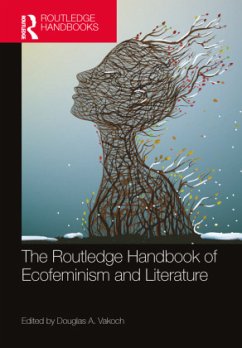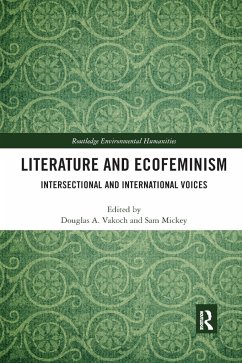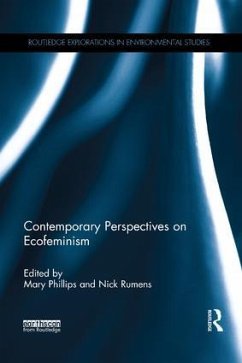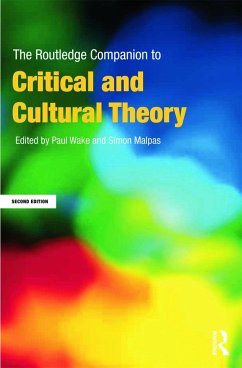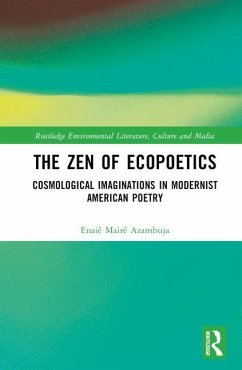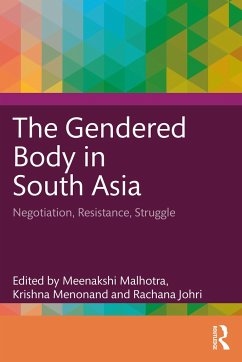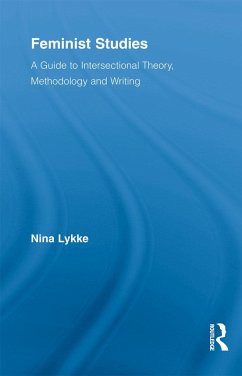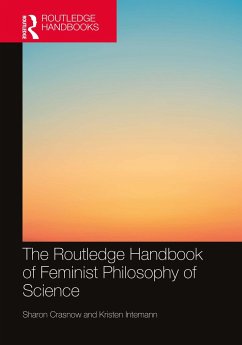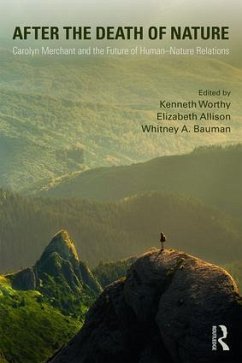
The Ethics and Aesthetics of Eco-caring
Contemporary Debates on Ecofeminism(s)
Herausgegeben: Estévez-Saá, Margarita; Lorenzo-Modia, María Jesús

PAYBACK Punkte
23 °P sammeln!
This book applies ecofeminist ethics to the realm of aesthetics, offering instances of how alternative configurations of the self, of nature and of non-human animals can go hand in hand with different and viable experiences and visions of environmental welfare.Preceded by an insightful introduction on the history of ecofeminism and of ecofeminist literary criticism, the chapters included in the volume illustrate the continuing theoretical influence of seminal ecofeminists such as Carolyn Merchant, Rosemary Ruether, Karen Warren, Val Plumwood, as well as an awareness of more recent trends in ec...
This book applies ecofeminist ethics to the realm of aesthetics, offering instances of how alternative configurations of the self, of nature and of non-human animals can go hand in hand with different and viable experiences and visions of environmental welfare.
Preceded by an insightful introduction on the history of ecofeminism and of ecofeminist literary criticism, the chapters included in the volume illustrate the continuing theoretical influence of seminal ecofeminists such as Carolyn Merchant, Rosemary Ruether, Karen Warren, Val Plumwood, as well as an awareness of more recent trends in ecofeminist formulations such as those proposed by Greta Gaard, Serenella Iovino, or Vernon Gras. The book also includes instances of contemporary nature writing such as the text by Irish poet Grace Wells, as well as case studies of the application of ecofeminist tenets in contemporary poetry and fiction written by both men and women. As the contributors demonstrate, contemporary writers are currently deploying a sound interest in the envisioning of alternative visions of healthy and ethical relationships between the human self and the natural environment.
This book will be of interest to those researching the use of language for posthumanist ethics, the deconstruction of gender dichotomies and the ethics of care and environmental justice, as well as to those studying the wider field of ecofeminist literature. This book was originally published as a special issue of Women's Studies.
Preceded by an insightful introduction on the history of ecofeminism and of ecofeminist literary criticism, the chapters included in the volume illustrate the continuing theoretical influence of seminal ecofeminists such as Carolyn Merchant, Rosemary Ruether, Karen Warren, Val Plumwood, as well as an awareness of more recent trends in ecofeminist formulations such as those proposed by Greta Gaard, Serenella Iovino, or Vernon Gras. The book also includes instances of contemporary nature writing such as the text by Irish poet Grace Wells, as well as case studies of the application of ecofeminist tenets in contemporary poetry and fiction written by both men and women. As the contributors demonstrate, contemporary writers are currently deploying a sound interest in the envisioning of alternative visions of healthy and ethical relationships between the human self and the natural environment.
This book will be of interest to those researching the use of language for posthumanist ethics, the deconstruction of gender dichotomies and the ethics of care and environmental justice, as well as to those studying the wider field of ecofeminist literature. This book was originally published as a special issue of Women's Studies.




